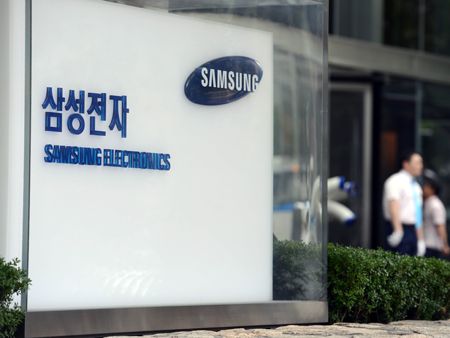Firms scale back on spending

Major Korean firms, including Samsung Electronics, are busy securing cash on expectations that the business environment will deteriorate in the near future. / Korea Times file
In times of massive uncertainties like these, cash is king and doing nothing becomes a valid investment strategy.
This appears to be an article of faith for Korea’s big businesses, which are rushing to scale back on their lavish investment commitments for this year and next as Korea’s export-dependent economy continue to sustain a lashing from worsening global conditions.
An official from Samsung Electronics, the undisputed kingpin of Korea Inc., told The Korea Times that the company expects to lower its investment in semiconductors next year by as much as 30 percent, or 16 trillion won, as the global demand for technology products continues to be sluggish.
Samsung is also planning to spend less than initially planned on its liquid crystal display (LCD) factory currently built in South China. Its rival, LG Display, also intends to cut investments as well.
SK hynix, the world’s second-largest maker of computer memory chips behind Samsung, has invested 4 trillion won in facilities and equipment this year, but its budget next year is expected to be dramatically smaller.
The financial difficulties in Europe and the faltering recovery in the United States have hurt Korea’s export-juggernauts, but not as much as the slowdown in China.
Industry officials also say that the rising labor costs in China, coupled with the strengthening value of local currency, is also reducing the incentives to move operations to the Middle Kingdom. Companies like Samsung have also dealt with increased scrutiny over labor conditions in China.
A survey of 500 large firms by the Samsun g Economic Research Institute (SERI) showed that only 15 of the companies were planning to increase their investment next year.
The situation looks a little less gloomy for firms in the non-manufacturing sector. Mobile-phone operators and online game publishers are expecting robust growth, thanks to the exploding popularity of mobile Internet devices that has been expanding their customer pool.
These companies are also less dependent on the customer markets in Western companies and China, which continue to look increasingly worse.
It has been a dismal year for wireless carriers, which have spent massive amount of money to fine-tune and promote their fourth-generation (4G) Long Term Evolution (LTE) networks.
However, the companies believe they will reap the fruits of their labor from next year as they expect LTE-aided boost in average revenue per user (ARPU).
KT issued 1.37 trillion won of asset backed securities (ABS) for the first half of the year to strengthen its cash flow. It plans to issue more of these securities by the end of the year to keep its investment active.
“Thee synergy between our telecommunication and non-telecommunication businesses and our active investment in future projects predicts high profits,” said KT spokesman Kim Chi-hyun.
“Our focus is the domestic market and we are relatively less susceptible to the global recession compared to manufacturers,” said Kang Shin-goo a spokesman form LG Uplus, the smallest of the country’s three telecommunications operators. “We have invested massively in our LTE networks, but we believe the increase in ARPU will make it worth it.’’
SK Telecom, the country’s largest mobile-phone carrier, said it didn’t increase marketing spending this year, but nonetheless was upbeat about the prospects of 2013.
Search giant NHN’s popular mobile messenger Line has the company dreaming about becoming a globally relevant company.
A representative from rival Internet company Daum was also expressing hopes for new opportunities provided by the portable Internet.
Games companies, however, were mixed in their prospects for next year.
“Despite the global recession, our main goal is to find a way to adapt to the widely diversifying game platforms due to the widespread usage of smartphones,” said Nexon spokesman Lee Young-ho. “Our business and investments have not altered this year, and we are discussing the plans for next year.”
Though the country’s largest game publisher and developer recorded over 1.4 trillion won in revenue last year and expect it to continue, it is feeling the need to expanding its mobile business and will do so accordingly.
NCsoft spokesman Yun Jin-won said “it would be difficult to say that the game industry is unaffected by the economical turmoil.” The company had two blockbuster releases this year: Blade & Soul in Korea and Guild Wars 2 in the United States and Europe.
“Through the successful localization of the two games, and their profits being reflected in our quarterly reports beginning in the second half of this year, we expect our numbers to increase by next year,” the spokesman added. <The Korea Times/Kim Yoo-chul, Cho Mu-hyun>





















































